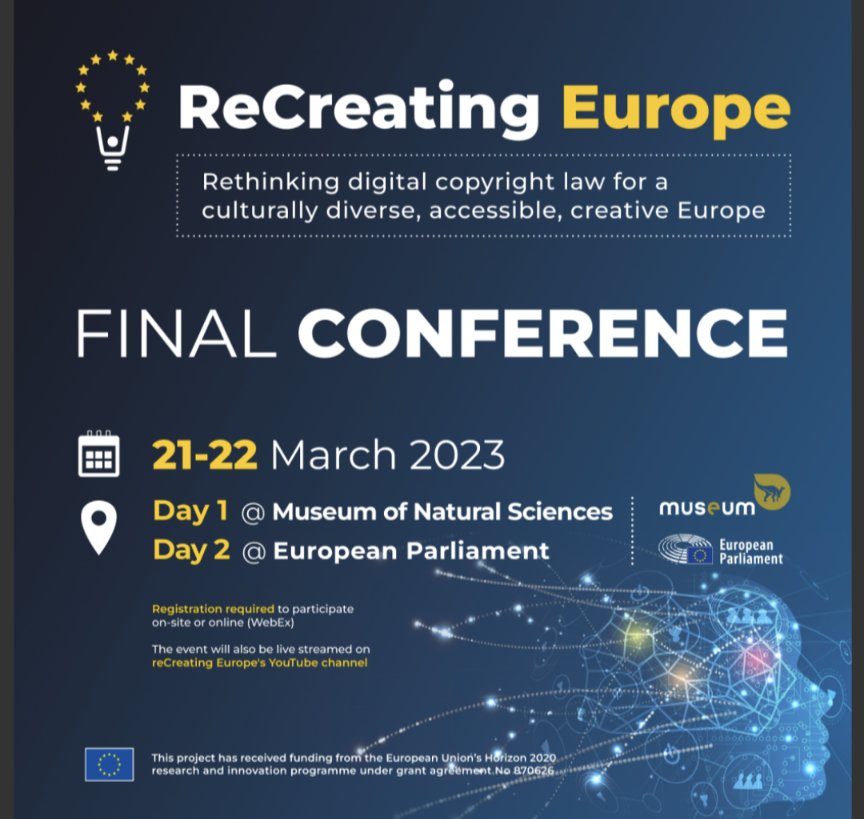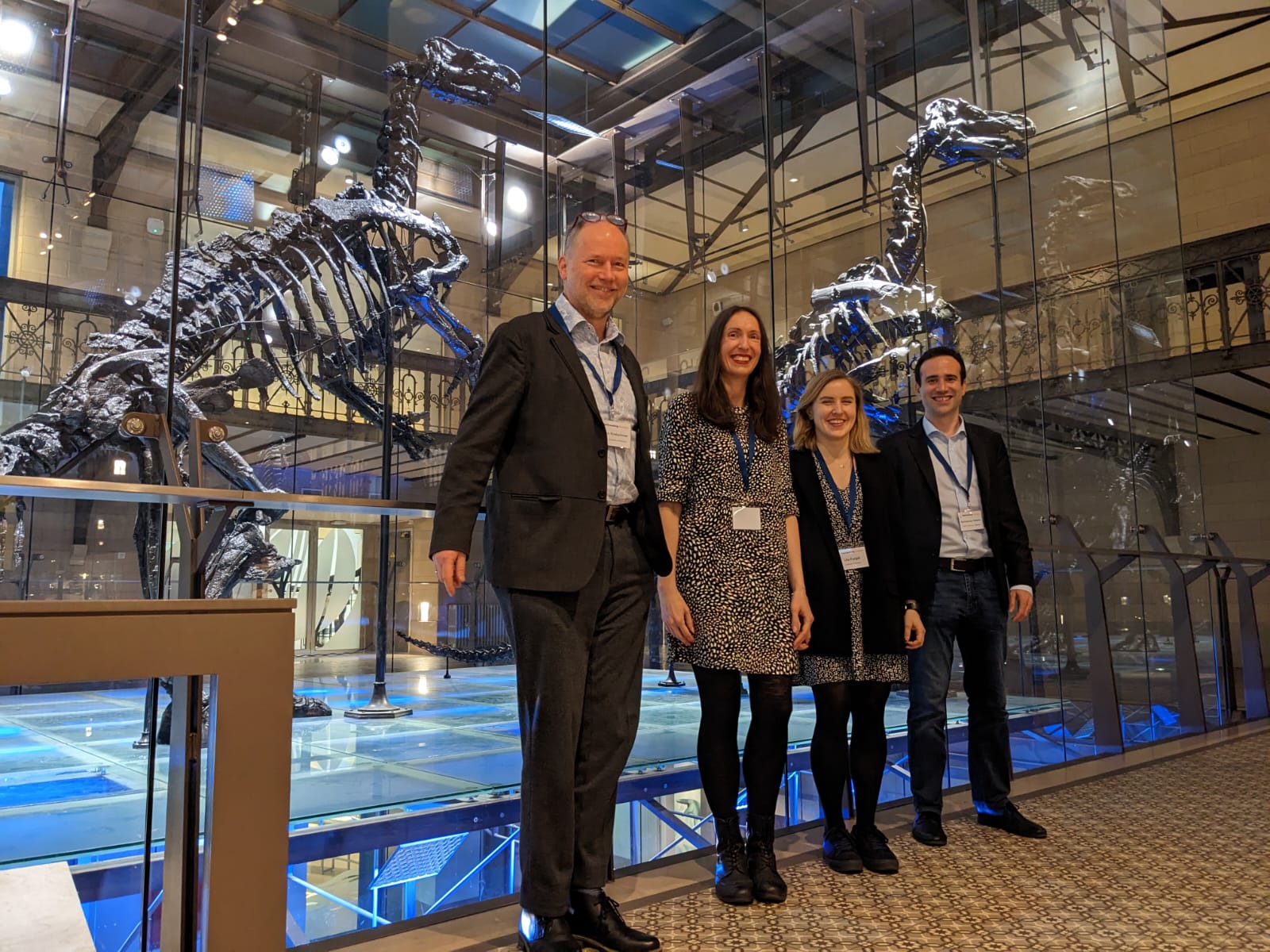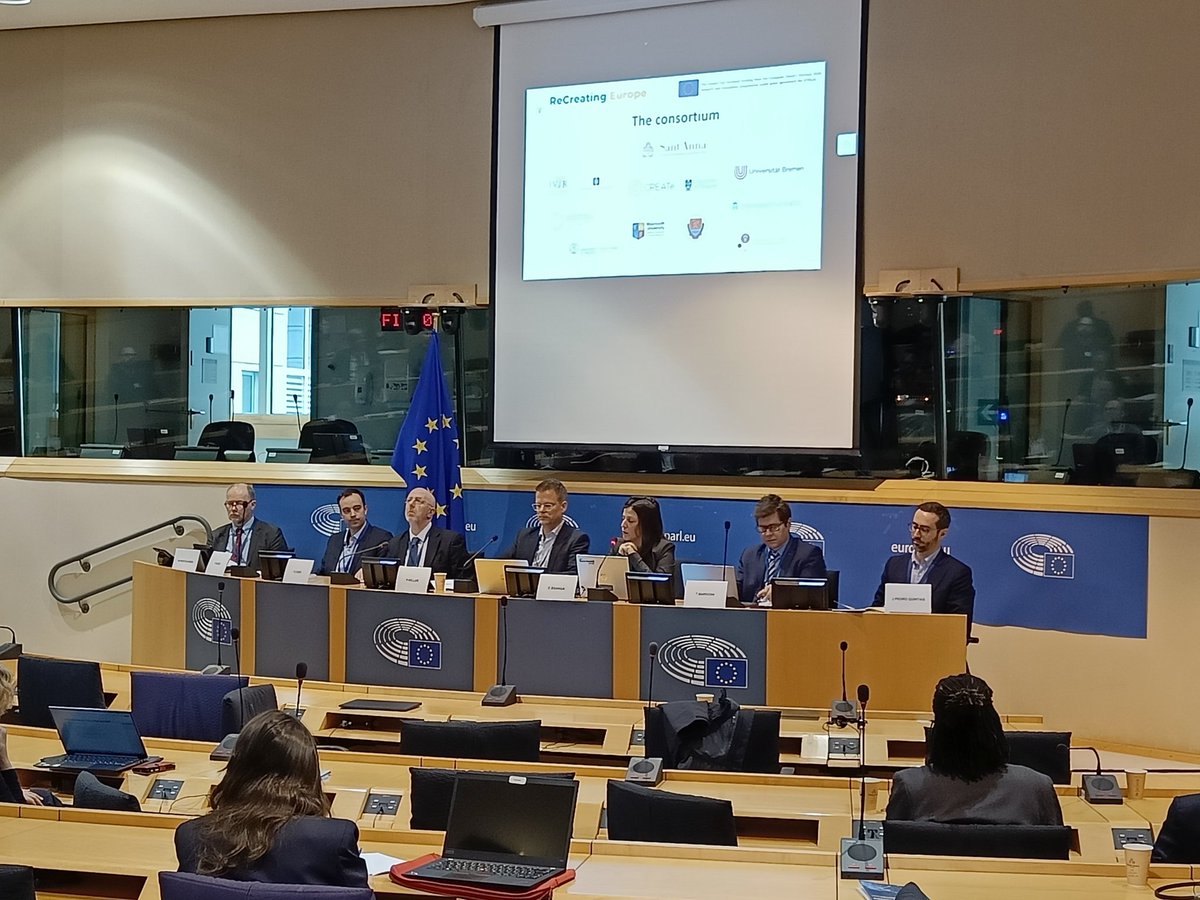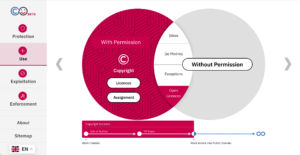For the past three years, CREATe has been a part of a 10-institution international consortium working on the reCreating Europe project, funded by the European Union’s Horizon 2020 research and innovation program. Coordinated by Caterina Sganga from the Sant’Anna School of Advanced Studies in Pisa, the ambition of the project was to rethink digital copyright law for a culturally diverse, accessible, creative Europe. It embarked to measure the impact of digitalisation on production and consumption of cultural goods and to map the respective regulatory responses, and eventually offer a set of policy recommendations and best practices to enhance the development of rich and diverse creative industries in Europe.
The final conference of the project took place in Brussels between 21 and 22 March. CREATe’s reCreating team led by Marta Iljadica was happy to participate and to present and discuss their work with the project partners and guests.
The first day of the conference, held in the Museum of Natural Sciences, provided an opportunity to showcase the project’s findings. The day was composed of themed sessions offering a deep dive into each substantive work package of the project.

ReCreating Europe Final Conference poster

From left to right: Martin Kretschmer, Marta Iljadica, Ula Furgał and Bartolomeo Meletti
The next session of the day concerning authors, performers and AI, offered a forum for discussion of CREATe’s work on reversion rights and text and data mining exceptions. Ula Furgał presented the results of the mapping of provisions allowing authors and performers to claim their rights back provided for in the EU member states copyright laws. The results, which can be explored on a dedicated website, draw attention to the uncertain meaning of the key term ‘use’, particularly in the digital environment. The results are valuable source of information for the ongoing implementation of the use-it-or-lose-it revocation right introduced by art. 22 of the 2019 Copyright in the Digital Single Market (CDSM) Directive. Thomas Margoni (KU Leuven) discussed his work with Martin Kretschmer on the copyright protections and ownership of AI data inputs. He emphasised the importance of data as an enabler of most digital technologies, which makes regulation of data, such as new text and data mining exceptions, a proxy for regulating digital technologies. He noted that paradoxically, the exceptions introduced by the CDSM Directive may favour the development of biased AI systems due to price and accessibility conditions for training data.
During the session on creative industries, Bartolomeo Meletti presented CopyrightUser.eu, a new platform providing authoritative and accessible guidance on EU copyright law. Building upon the success of the UK platform CopyrightUser.org, the Copyright User EU website offers an innovative, educational user experience. In addition to a more traditional left-hand side menu, the website can be navigated through a series of interactive infographics. These are designed to help users understand the thought process they need to follow to make informed decisions on copyright issues. Once they identify a topic of interest, users will find general guidance about that topic, additional guidance specific to certain types of work, research outputs, as well as relevant legislation and case law. As part of the same session, Stef van Gompel (now Professor of Intellectual Property at Vrije Universiteit Amsterdam) presented the Codes of Best Practices on Creative Reuse for Documentary Filmmakers and for Immersive Experiences that CREATe and IViR (University of Amsterdam) developed for ReCreating Europe.
Marta Iljadica was joined by Pinar Oruc (University of Manchester and CREATe Fellow) to talk about intellectual property and placemaking during the fourth session of the day on cultural heritage institutions (GLAMs). Their presentation explored research undertaken jointly with the universities of Trento and Tartu on copyright and the circulation of cultural heritage, including the importance of accessible museum spaces, as well as the significance of trade marks to city branding strategies.
The second day of the conference took place in the European Parliament and focused on reCreating Europe’s policy recommendations for the future of the EU copyright law. Following keynote addresses of MEP Brando Benifei, MEP Axel Voss and Marco Giorello, Head of the Copyright Unit (DG CONNECT), representatives of the consortium partners advanced potential copyright interventions focussing on limitations and exceptions (benefiting users and vulnerable groups), creators and creative industries, intermediaries and the GLAM sector (galleries, libraries, archives, museums).

A panel of reCreating representatives at the European Parliament. From left to right: Martin Kretschmer, Peter Mezei, Roberto Caso, Paul Keller, Caterina Sganga, Thomas Margoni, João Pedro Quintais
Speaking on behalf of CREATe, Martin Kretschmer recognised that the project’s 50+ recommendations are of very different types. They reach from traditional law reform, to guidance documents and soft law, to awareness raising about scope and best use of existing provisions. He also stressed that understanding copyright within the emerging context of data access and governance poses fundamental challenges for copyright’s traditional approach to private rights.
For primary creators (authors and performers) there are comparatively uncontroversial opportunities deriving from the ‘fair remuneration’ provisions of the 2019 CDSM Directive (such as revocation rights and transparency obligations). Effective and consistent implementation of these provisions and better information for creators are ‘low hanging fruits’.
A second core ambition of the reCreating Europe project, ‘encouraging innovation and re-use of copyright materials’, however turned out to be much harder to realise. This appears to require no less than a change in culture, for example facilitated by codes of practice encouraging a progressive interpretation of the law.
Lastly, Martin Kretschmer articulated a need for experimentation, often involving a technical element, as in the switching between providers in retail banking via trusted third party technology. Analogous to ‘Open banking’, he proposed an ‘Open streaming’ remedy. Creators and users face obstacles in switching platforms. Under what conditions would it be possible to transfer network data (such as followers, use data, copyright metadata) when switching between streaming platforms? Opportunities for ‘Open streaming’ may increase the contractual bargaining position of creators considerably, with consequences for remuneration.
Publications and resources of the reCreating Europe consortium can be accessed here.






